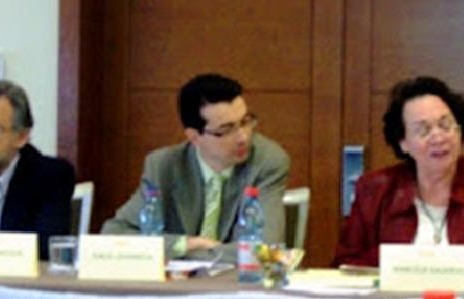Chinese Reactions to the Brazil Protests
Protests in Brazil are currently the focus of discussion and debate within Chinese government institutions.
This post is also available in: Spanish
We are pleased to share with you a column by PREAL Co-Director Jeffrey Puryear, published in the June 3 edition of the Latin America Advisor – a daily publication of the Inter-American Dialogue. Puryear suggests that the recent rise in test scores in Chile is due to efforts over several decades by the country’s leaders to generate a national debate on student learning, and a willingness to experiment with a broad range of innovative policies. While it is not clear which policies have had the greatest impact, and much remains to be done, Chile’s experience demonstrates that political leadership and sustained effort can generate real progress.
Educational Reforms Helping Students Make the Grade in Chile
WASHINGTON-Test scores are up in Chile. Between 2009 and 2010, fourth grade reading scores on the country’s national achievement test rose nine points-the largest one-year increase ever recorded. More importantly, most of the gains occurred among the poorest students, rather than among the richest. The gap in reading scores between rich and poor students has declined by nearly 30 percent over the past decade. At the same time, Chile’s reading scores for 15-year-olds in the OECD’s 2009 PISA exam were the highest among the nine Latin American and Caribbean countries that participated and improved more than any of the 65 participating countries. This is great news for a country where scores on student achievement tests have been flat for decades, and where inequality has been remarkably high.
To be sure, the test scores of Chile’s students are still too low. Less than half of fourth-graders score at the advanced levels, and roughly a quarter are two years below grade level. Math scores have hardly improved at all. And in the PISA exam, Chile still scores well below the OECD average.
Still, Chile’s recent progress is encouraging, and suggests that the country is doing something right. But what? Chile was one of the first countries in the region to establish modern, nationwide student achievement tests and make the results widely available to parents and local communities. It long ago decentralized education provision to municipal governments and was the first (and only) country to establish a school choice system that enables parents to send their children to schools that are privately operated but publicly funded. Chile also expanded the school day, significantly raised salaries in an effort to persuade more talented students to become teachers, experimented with various forms of merit pay and was a pioneer in persuading the teachers union to agree to annual performance evaluations. It established a “Preferential School Subsidy” that provides schools with extra funding for the students they enroll from disadvantaged backgrounds.
Chile’s leaders haven’t stopped experimenting. The country is now introducing learning standards and setting up a new education quality assurance system that will monitor school performance and intervene when individual schools fail to meet minimum levels. And public school principals will soon be permitted to dismiss the lowest-performing 5 percent of teachers in their schools. It has also made education a long-term state policy, shielding it from the short-term fluctuations of successive administrations.
Perhaps research will eventually show that one or another of these measures was crucial. But what is clear is that few Latin American countries have worked harder and longer to improve their schools. Whatever the merits of any single measure, putting quality education at the top of the national agenda, scouring the world for good ideas, experimenting with new approaches, evaluating results, adjusting policy appropriately and generating a national discussion about test scores send a powerful message to students, parents and teachers that learning is important-and cause them to increase their effort. In Chile’s schools, strong political leadership and old-fashioned perseverance may be paying off.
Protests in Brazil are currently the focus of discussion and debate within Chinese government institutions.
Conference to discuss the topics of training, innovation, corporate social responsibility, and sustainable development.
Unique lens into what those who know education policy best are saying about current trends in Latin America.

